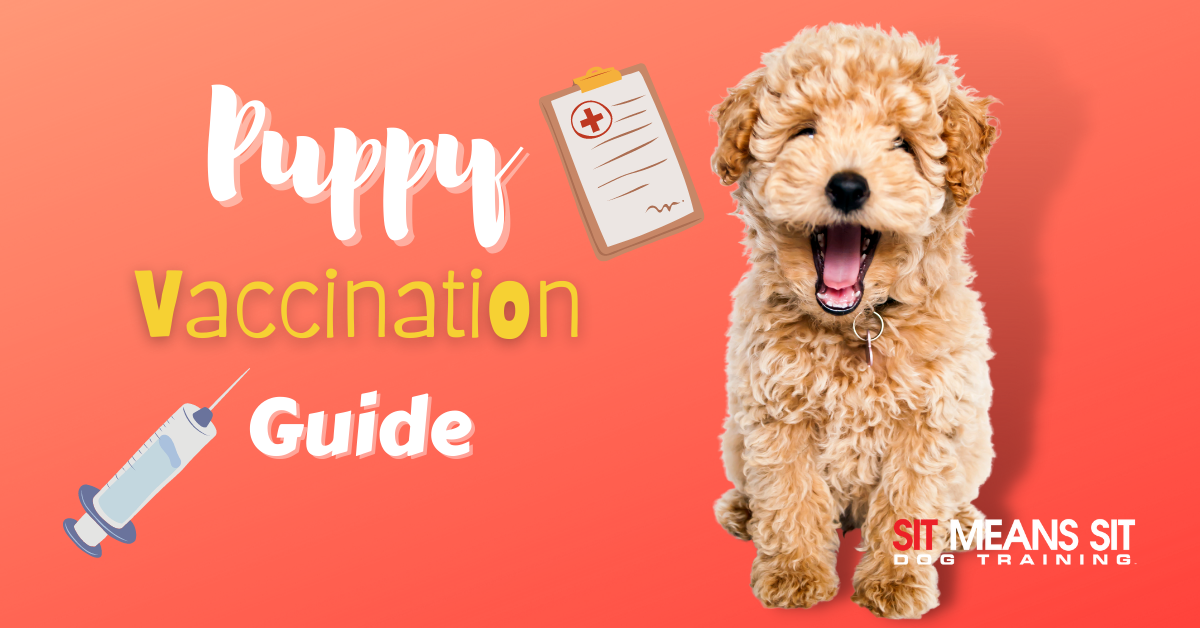
Puppy Vaccination Guide
Puppies are innocent and adorable balls of fur. When you first bring your puppy home, everything with them is exciting! But puppies come with a lot of work, you need to find the best puppy food, socialize them, have playtime, deal with teething, and get them up-to-date on shots! Puppies are new to the world, so their immune system is very different than adult dogs. They likely have immunization antibodies leftover from their mom, but pretty early on, puppies need to start getting rounds of vaccinations to protect them from the exciting world around them.
Which Vaccinations Should My Puppy Be Getting?
Vaccinations can be overwhelming at first, especially if this is your first time having a puppy. Your vet will help you through the process of vaccination rounds, boosters, and telling you which shots are a must for your puppy. But here’s an overview of what to expect and what you need to protect your puppy against:
Bordetella Bronchiseptica
This bacteria is highly infectious and causes extreme coughing, vomiting, whooping, seizures, and in rare but severe cases, death. This bacterial infection is the main cause of kennel cough. If you want your dog to be able to go to any puppy classes, board a plane, or use daycare, then you will need records of their vaccination.
Kennel Cough
Kennel cough or infectious tracheobronchitis is due to the inflammation of the airways caused by bacteria, viruses, or other viral infections. Cases can be mild dry coughing to severe gagging and loss of appetite. Kennel cough spreads virally through close kept spaces with dogs, hence the name. So if you have your puppy in a home with other pooches, visiting dog parks, or daycare, this is a must.
Canine Distemper
Canine distemper is a contagious airborne virus contracted from other infected dogs or animals like raccoons or skunks. It affects the gastrointestinal, nervous, and respiratory systems in dogs. This virus can be very severe due to the lasting effects of the symptoms.
Canine Hepatitis
This highly contagious viral infection affects the eyes, kidneys, liver, spleen, and lungs of a dog. Depending on the severity, dogs can face a slight fever or congestion to vomiting, liver pain, and stomach enlargement.
Canine Parainfluenza
This is a virus infection that can contribute to kennel cough.
Coronavirus
Canine coronavirus is not the same as COVID-19 in humans, but it affects their gastrointestinal and sometimes respiratory systems. Most symptoms include vomiting, diarrhea, and loss of appetite.
Heartworm
This is not a vaccination, but heartworm prevention can start around 12-16 weeks. Prevention is highly suggested as there is no cure or vaccination for worms that lodge in a dog’s pulmonary arteries.
Leptospirosis
Leptospirosis is caused by bacteria in water or soil. It can spread from animals to people and doesn’t show symptoms right away. Some symptoms shown after contraction will be vomiting, fever, stomach pain, severe lethargy, infertility, and kidney failure.
Lyme Disease
Lyme disease is an infectious tick-borne disease caused by the bacteria released from a bite. These bites can be very serious if not treated, causing issues in the kidney, heart, joints, and brain.
Parvovirus
Parvo is a severe and highly contagious virus. It can be so extreme that without treatment it can turn deadly quickly. Read more about Parvo here.
Rabies
Rabies is a viral disease found in many animals that can affect the central nervous system. The effects can be mild to severe, such as headaches, hallucinations, excessive drool, paralysis, and death. Most states in the U.S. require a rabies vaccine to be administered to your animal.
